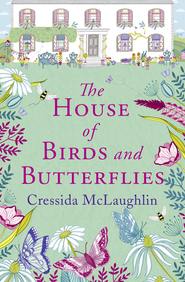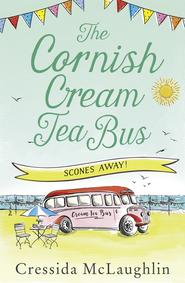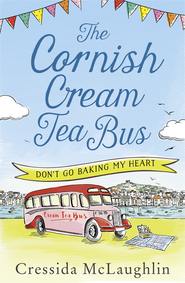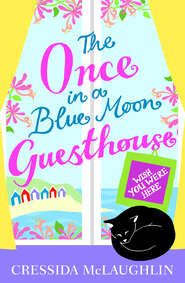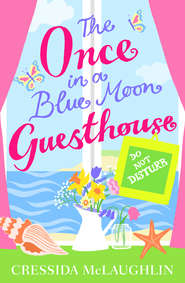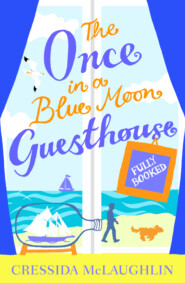По всем вопросам обращайтесь на: info@litportal.ru
(©) 2003-2025.
✖
Sunshine and Spaniels
Автор
Год написания книги
2019
Настройки чтения
Размер шрифта
Высота строк
Поля
‘I really don’t mind,’ Cat said, trying to head off a squabble between the girls. ‘Our event’s done now, and I’d like to say hello to your mum again. Do you live close by?’
‘Number twelve Primrose Terrace,’ Emma said proudly.
‘Of course!’ Cat said. That’s where she remembered the older girl from – she’d passed them in the street on more than one occasion.
‘What?’ Lizzie asked, her slender brows lowering.
‘I live on Primrose Terrace too. Oh, this is perfect. I’ll just go and get Chips, and we’ll all walk back together.’
‘Of course,’ Joe said brightly. ‘We can’t get away with not knowing about one of our neighbours, can we?’
Cat shot him a sideways glance and went in search of Polly and Chips.
Chapter 2 (#uaad6cec8-5d6a-562f-84d8-d53b763ef264)
The primroses that characterized Primrose Terrace lasted all the way through the spring, filling the wide grass verges opposite the houses with whites and pinks and blues, as well as the more common yellow. It looked like an intricately weaved carpet, and Cat wondered who tended to them, making sure they bloomed so spectacularly every year. She wondered whether the primroses had given the terrace its name or if it was the other way around.
The houses only ran along one side of the road. Opposite them, and beyond the colourful verges, was a high, redbrick wall shielding the back gardens of the seafront houses from view. Cat loved knowing that, just beyond those houses, was the endless expanse of glittering blue or churning grey water.
Their party of three grown-ups, two children and two dogs passed Jessica’s extravagant house at number one, reminding Cat that she hadn’t seen the author at the Pooches’ and Puppies’ Picnic, either superglued to Joe or anywhere else; then the bed and breakfast, a couple unloading suitcases from a VW Beetle outside; then Mark’s slightly shabbier house. Chips climbed the stairs and Cat thought she probably shouldn’t take a strange – albeit passive – dog to someone else’s house, especially when they had a baby.
‘Could you get Chips settled, Polly? I’ll come and check on her later.’
‘Of course.’
Cat handed Polly Mark’s key and Chips’s lead.
She lost Joe as they passed number nine.
‘I’ve got some work to catch up on,’ he said. ‘Nice to meet you, Emma and Lizzie.’ He bounded up the steps, leaving Cat, the girls and Olaf standing on the pavement.
‘Right then, it’s just us chickens.’ They made their way down the road, to number twelve.
‘We didn’t paint it,’ Lizzie said, ‘but we think we’ve got the prettiest house on the street.’
‘I can’t argue with that,’ Cat said.
Number twelve was pale pink, with the same white window frames as the other houses, and a white front door. Someone had, presumably a long time ago, painted a design of pink daisies round the edges of the door, but it was so faint now Cat could only just see what it was. There were cuddly toys lining one of the upstairs windows, looking out at the street, and the downstairs curtains were shut, despite it being the middle of the day. It was a very pretty house that, Cat thought, with a few extra touches, could really stand out.
‘I’ll check with Mum,’ Lizzie said. Emma followed closely behind, almost bumping into her sister. The door was ajar, and Lizzie pushed it open and slipped inside, followed by her sister. Cat waited, drumming her fingers on her arms. She thought she could hear someone shouting, but then the door swung open and a woman about Cat’s age appeared.
‘Hello?’ Her voice was breathless and clipped, her irritation clear. ‘Can I help?’ She had reddish-brown hair tied back from her face in a scrappy ponytail, green eyes and no make-up, a silver stud glinting just above her lip. Her cheeks were pink and her eyes red-rimmed. ‘Now’s not a good time.’
Cat wiped her hand down her dress and held it out. ‘I’m sorry to bother you, but I’m Cat. I used to work at Emma’s nursery, and I met her and Lizzie in the park today.’
‘They weren’t meant to go to the park,’ she rushed. ‘They were meant to walk up to the end of the road and back, that’s all. And then – I couldn’t leave, because of Henry, or what if they came back and I—’ She stopped and took a deep breath, shook her head. ‘What’s the problem?’
‘There isn’t a problem,’ Cat said. ‘I found Emma and Lizzie in the park with Olaf, and I thought…’
The other woman folded her arms. ‘You thought what? That they shouldn’t have been out without their mum? I told them not to leave the terrace, but there was some bloody dogs event in the park. I don’t need you – or anyone else – telling me how to do things.’
‘I’m not, I promise.’ Cat glanced up the street, hoping to see Polly’s instantly likeable face, but for the moment Primrose Terrace was quiet. ‘I wanted to say hello. I moved into the street at the beginning of the year, and I can’t believe we’ve not met properly yet. Also, it sounds like it’s partly my fault. I put on the event in the park, for dogs and their owners.’
‘Great, brilliant. Thanks for that. I don’t have time for a neighbourly chat, I need to see to Henry.’ She stepped back and moved to close the door, but Cat put her hand out.
‘Look – can I ask your name?’
‘I have to go.’
‘Please. They were so worried they’d upset you. I think they were trying to help.’
‘What would you know? Girls,’ she called, turning away, ‘wash your hands. Now. No complaints.’ She faced Cat again. ‘Look, Cat, is it?’
Cat nodded.
‘Thanks for bringing them back, but I need to get on.’
‘It’s just that—’ Cat stopped, wondering how to broach the subject.
The girls’ mother eyed her suspiciously. ‘What?’
‘Lizzie and Emma might have mentioned that…that you could do with some help.’
The young woman’s eyes widened. ‘They what?’
‘The thing is,’ Cat hurried, ‘I run a dog-walking business now, and this event that Lizzie noticed – well, she mentioned that sometimes, with the baby, it’s hard for you to get out. With Olaf. Hard for you to all have time together.’ She swallowed and crossed her fingers behind her back. This had potentially been another of her Worst Ideas Ever, and she didn’t want to patronize the woman or make her feel that she was a bad mother. She didn’t want to get the girls in trouble either.
The young woman looked at her for so long that Cat thought she might have somehow become invisible, but then she pushed the door open wider, and Cat could see the hallway beyond. ‘They said that, did they? About spending time together?’
Cat nodded.
The girls’ mother rubbed her eyes and gave a tiny shake of her head. ‘I’m Frankie,’ she said quietly. ‘They shouldn’t have done that, gone to the park. They know the rules.’ She gestured for Cat to come in.
‘They’re back though,’ Cat said, ‘and they’re fine.’
‘It’s bloody hard at the moment, with Henry and my shifts at the restaurant. My two girls are basically sorting themselves out, and I know it’s not fair – they’re still so young.’
She led the way into the living room, which was similar to the one at number nine, except that everything was bright, a myriad of colours. The sofas were red, the distressed wooden coffee tables dark purple, and the white walls were barely visible, covered in kids’ drawings, chains of seashells, a living scrapbook of Frankie and her family. Toys, magazines and clothes in various sizes covered every surface, a pale pink gauze hung across the doorway into the kitchen, and the threadbare carpet was hidden beneath a round, rainbow-swirl rug. It wasn’t tidy, but it was vibrant and full of life.
Вы ознакомились с фрагментом книги.
Приобретайте полный текст книги у нашего партнера:
Приобретайте полный текст книги у нашего партнера:






